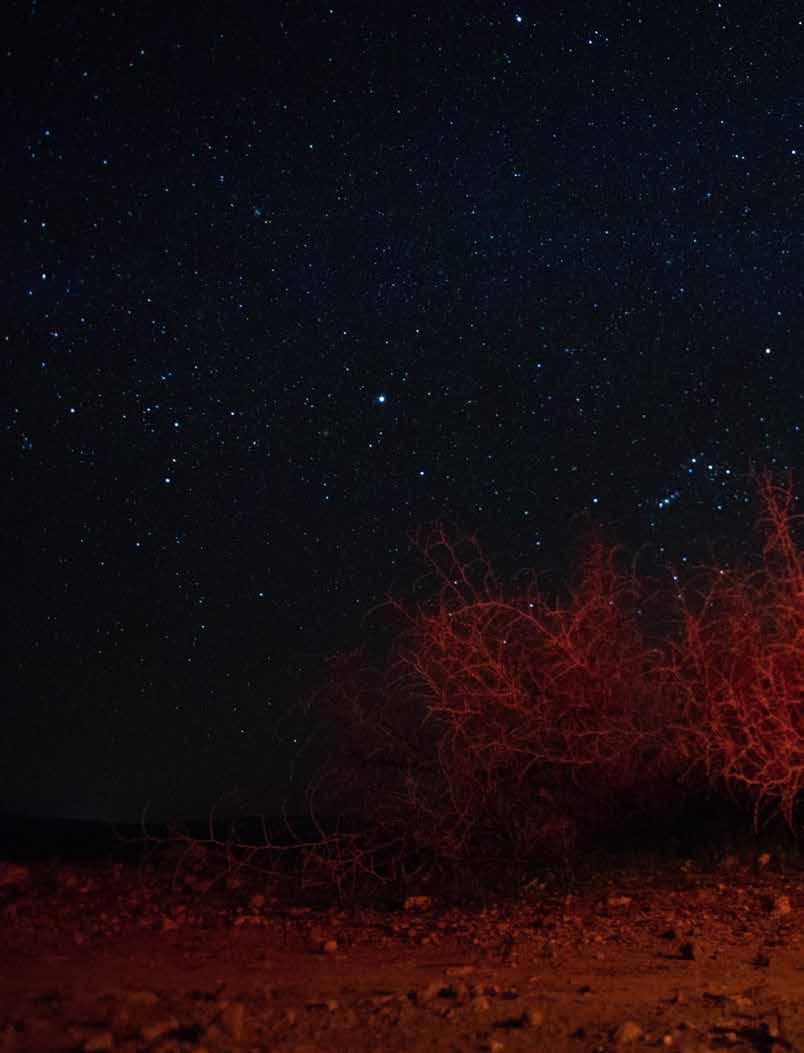
4 minute read
OFM CULTURE
Psychedelics for Queer Healing
by Addison Herron-Wheeler
Today, it isn’t uncommon for people to speak of psychedelics in a positive light. Denver has decriminalized magic mushrooms, and the impacts of MDMA and psilocybin mushrooms on depression, anxiety, and PTSD are being explored. But this wasn’t always the case. Following the initial boom in psychedelics curiosities, a time when Timothy Leary spoke up about the powers of consciousness expansion and even The Beatles sung its praises, there was an almost-immediate backlash from those who were nervous about consciousness expansion. Falling in line with the rest of the war on drugs in the late 70s, 80s, and 90s, the reaction fit in with the racially fueled hate against cannabis and the xenophobic attitude toward substances accepted in other cultures. Now, as we collectively start to unpack colonization and the war on drugs, it is time also to unpack the stigmas against psychedelics. “Psychedelics are being researched right now at universities and various institutions all around the world, and MDMA and psilocybin have been given what’s called breakthrough therapy status with the FDA, which means that they’ve been put on the fast track to be approved by the federal government as prescription medications,” explains Shelby Hartman, editor and co-founder of DoubleBlind Mag, a publication that covers all things psychedelic. “One of the things that advocates are most hoping to see is a large chunk of federal funding being allocated to support psychedelic research for two reasons: one, because research is really expensive, and two, because if the money comes from the government, then it’s also a signal of the federal government’s interest in at least exploring the potential of these medicines therapeutically.” Now, there is a universal realization happening across academia, science, and medicine that, while certainly, mindexpanding drugs can be dangerous to experiment with in some cases, and without regulation, they can also offer a lot in terms of therapy and relief. Among those who need these mental health resources are people in the queer community. “Even when folks who are in historically marginalized communities do have resources for mental health, a lot of times, they just feel misrepresented or unseen,” Hartman continues. “We need to be recruiting queer therapists and therapists of color to administer these medicines when they do go to market. It’s not as simple as just, ‘Psychedelics should be given to marginalized communities.’ It’s also about
Psychedelics
how we are going to create a system in which marginalized communities are actually supported, so they can get the most out of these experiences. “When psychedelics are legalized as medicines, the hope is that they’re going to be legalized in a way that ensures access for the people who need them most. It’s interesting to consider alternative models specifically for marginalized communities, beyond just having a supported, psychedelic trip with two therapists sitting next to you.” Hartman is also interested in the concept of group healing, something that has been proven successful, specifically for marginalized communities. For example, a study from University of California San Francisco did a group therapy experiment with psilocybin for those with HIV. Those who had the shared experience of having lived through the AIDS crisis benefitted from doing therapy together, so that they could work through their shared trauma with support. By and large, the support for psychedelics is in the realm of research and therapeutics, but there is definitely also a recreational interest. And, as most queer folks are aware, for the marginalized, there isn’t always a difference between theraputic medication and recreation. “We’re not more for the medical side than we are for, say, the ceremonial use of psychedelics, or just tripping with your friends,” explains Hartman. “I think it’s an intentional publicity choice on the part of researchers that they aren’t going to talk about any applications beyond the medicine of it, whereas at DoubleBlind, we kind of think of it more like education. People are going to do the thing, so we might as well give them the resources that they need to do the thing safely.” Still, she cautions that, if psychedelics eventually evolve a recreational industry, it is important to avoid some of the mistakes made by the cannabis industry. While she highlights the importance of diversity in whatever industry springs up, she also has concerns about full legalization and monetization. “It’s hard for me to say at this point whether that’s something that I would advocate for because it would have to come with so much public education around how to use psychedelics safely,” she adds. “People say, ‘Oh, it’s dangerous to drive high,’ but if you take psychedelic mushrooms and get beyond the wheel and start tripping, that’s really dangerous and potentially fatal for you and other people. I think there are a lot of questions to be asked and answered if there is going to be a recreational market, in order to make sure things are being done in a responsible way. “ There may not be a psychedelics industry any time soon, but for now, the therapeutic impacts for marginalized communities are finally being appreciated, and that is a great first step.







